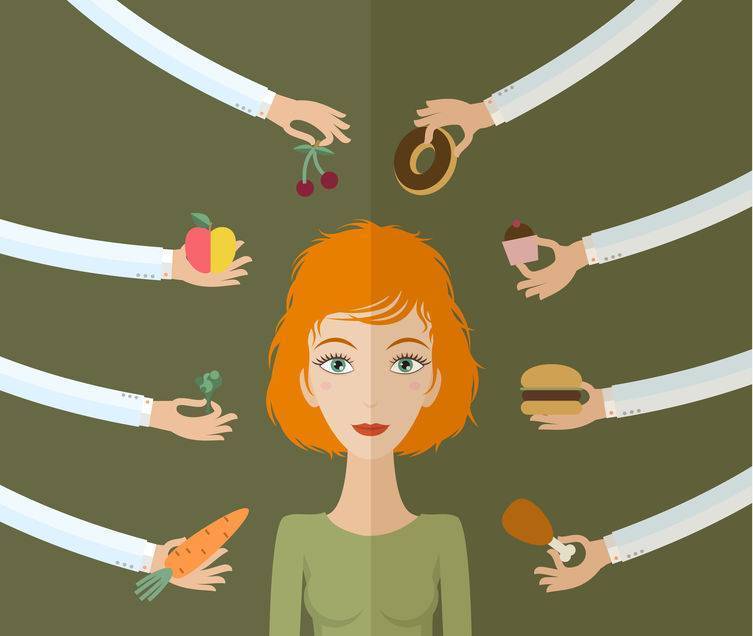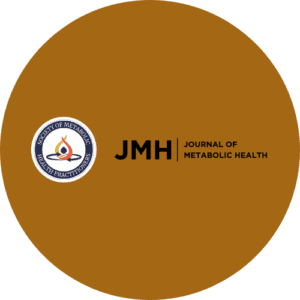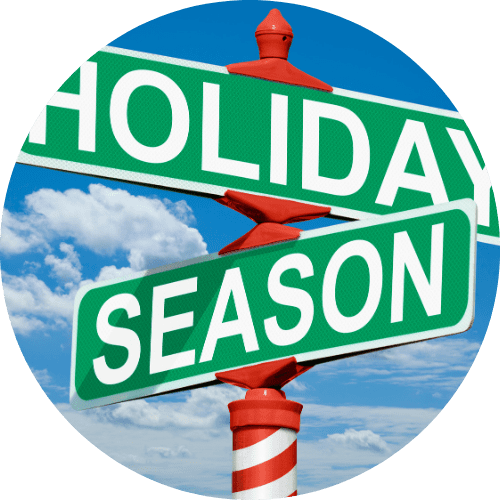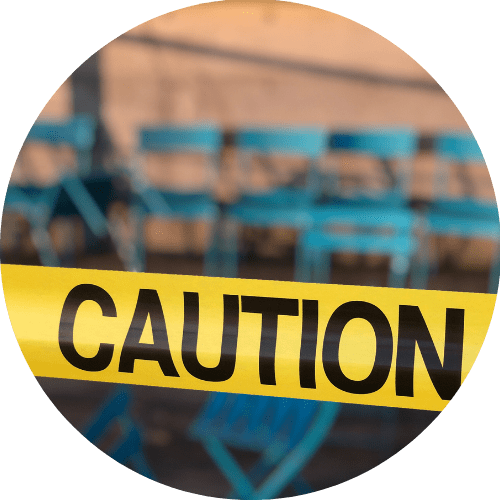By Amy Eiges

I am a food addict.
The fact that I have lost about 180 pounds would seem to indicate that I am no longer a food addict, and indeed, I had convinced myself for a while that this was the case. Riding high on weight loss and ketones, decreasing clothing sizes, and admiration from friends and family, despite a lifetime of self-doubt, I started to believe my own hype: I. Have. It. All. Figured. Out.
Turns out…ummm…not so much.
My lifelong struggles with weight and very personal diet-wars are discussed here, here and here, but what the requisite dramatic before-and-after photos don’t show are the embarrassing day-to-day battles with a compulsion to overeat. While keto has handily squashed excessive physical hunger in ways the countless diets I had tried for 40 years failed at, I still often find myself wanting to eat past hunger (or despite lack of it).
Pre-keto, I spent years trying to make peace with food via intuitive eating. I now understand why doing so while consuming carbohydrates every two hours was not a winning strategy, but it did help me become aware of internal cues. Physical hunger has been so greatly reduced on keto, that I naively believed I had conquered my overeating issues.
It was Dr. Tro’s recent video blog about his own battles with food dependence that made me start to re-think this more deeply. Here’s what I and so many of us know and live every single day: there is no diet, no matter how healthy, physically satiating or well-constructed, that my food addict-brain will not work overtime to manipulate, sneakily looking for a loophole in which to get its way. Give me any way of eating (even fasting), and my mind begins bargaining like a child trying to put off their bedtime by asking to be read “just one more book.” Except these are fairy tales I tell myself, over and over, in a myriad of new and conniving ways – all now keto-friendly, but all varying degrees of substance abuse.
In truth, I am horrified and ashamed to admit the ways my brain bobs and weaves to get the rewards it believes it deserves. Of course, this applies to highly palatable and keto-friendly cookies, nuts and chocolate – the usual suspects. But even eliminating or greatly reducing those, my brain looks for new and devious ways to get a dopamine hit. I used to be able to have heavy cream in my home for an occasional after-meal coffee, but when I recently finished a pint in just under two days, I realized it was now on the do-not-buy list. Then, I substituted unsweetened Nutpods for the cream. Bought one container. Then 3 (just in case the market runs out!), then ordered in bulk on Amazon. Finished 12 in nearly as many days by finding new and interesting ways to use it. Still keto, not good.
These are all “legal” keto foods that I found ways to make “less-than-legal,” and despite the bargaining swirling around in my head I now know the truth: this time buying (dealer’s choice) is not going to end differently, no matter how hard my brain tries to coerce me into believing otherwise. I may not always abide (because, well, I’m human and life happens), but I can no longer claim that I don’t know that this chapter of the story ends in a really ugly way – filled with empty food containers, self-loathing, shame and regret.
In the early days of keto this wasn’t a big problem. I could have a bulletproof coffee for breakfast, eggs and bacon for lunch, a steak and some vegetables for dinner, maybe an occasional snack or coffee with heavy cream to tide me over here and there, a keto dessert. I was stuffed, happy and still lost weight. I have had to tweak things along the way, based on hunger, cravings and to get the weight loss moving in the right direction, including giving up a daily “I’m-gonna-die-on-this-hill-holding-a-pink-packet-of-Sweet ‘n Low” in my morning coffee. All of these helped me lose a whole lot of weight and have significantly less cravings, but the compulsion to overeat is still there. I am an addict and have come to the hard realization that there are many foods that my brain will always see as single-serving sized – no matter how many portions the package claims to contain.
The cold, ugly truth…I will always be a food addict. Though I’ve tried on others for size, food is my drug of choice. Wishing this not to be true is like wishing my eyes aren’t blue and my hair isn’t brown (well, the roots anyway!). It is what it is.
Staring into the abyss of over 200 pounds to lose, I used to give up on myself and into the addiction many times a day. Each morning I would start anew and then give in and hate myself just a little more – fueled by lack of hope, terrible medical advice and an almost hourly ride up and down the carb freight train to hell.
The difference between then and now? The food addiction no longer defines my days. By keeping low carb, I have hopped off the roller-coaster and have a fighting chance at making rational decisions that take my greater self in to account. Food addiction may still occasionally ruin a perfectly good day, but it is no longer ruining (or running) a perfectly good life.
Just a few days ago, as I sat down to write this, the streets of Manhattan were starting to empty out due to COVID19, and the fear and eeriness of it started to get the best of me. I was in a small corner market and had more than a fleeting thought about buying tons of junk food, eating the way I used to in an effort to numb the anxiety into oblivion – bags of chips, cookies, cakes, garbage. I heard Dr. Tro’s voice in my head say, “If you’re going to decompose, do it on your terms” and left the store with just a few non-carb essentials, but I couldn’t believe how quickly and seamlessly my mind started to replay those old tapes. Even now – three years in, those messages are familiar and somehow oddly comforting, like a well-worn favorite sweater. When I “came to” it was jarring, but thankfully I was able to recognize these thoughts for what they were and reminded myself that is not who I am anymore. Despite how many years I’ve been low carb, I have come to realize there is no end to this process. It requires constant re-evaluation and vigilance.
And then, a few days later, like everyone, I found myself at home, sheltered-in-place, anxious and obsessively eating keto snacks like it was my job, and again it caught me by surprise. Years ago, under a very different set of circumstances, after my mother died, every day was a mission to numb the pain by endlessly eating the grief into a stupor. One day, finally, I woke up from yet another sickening binge and heard my first clear thought in months, “There is no amount of food that is going to bring her back.” And though it would take me a while to claw myself out of the quicksand, it is that moment of clarity that now informs so much of how I choose to navigate my cravings and desire to overeat. Food is not going to make me any less anxious except for the 5 minutes I am eating and numbing. When I wake up from the food daze? The anxiety will still be there, along with the self-hatred and shame about, once again, giving up on myself.
I must admit…I hesitate to put this out for everyone to read: as a health coach, shouldn’t I have this all figured out? Am I a big fraud? How can I publicly admit something so embarrassing and shameful that I can hardly stand to admit it even to myself? And why is my experience with low-carb so different from so many others who report no desire to over-consume?
It is my hope that I can help those that might be struggling precisely because I am still actively involved and engaged in this process – that I can relate in ways that someone who has not experienced these battles can only understand on an intellectual level. It’s like describing the color blue to a person who is blind – there are not enough words or adjectives to replace the experience of seeing the color. I understand the compulsion to overeat because I’ve lived it. I am living it.
I have come to accept that for whatever reason this is my cross to bear. Fighting it for decades landed me morbidly obese and miserable, but the fact that I have now recognized it does not mean I need to give in to it. With awareness comes power, so now I defend myself and prepare for cravings and yes, sometimes, even indulge them in ways that are safe and on my own terms. In the words of Dr. Tro, “Binge low carb and live to fight another day.”
If I continue to do that and stack the deck in my favor by not eating carbs, especially sugar and flour, I will not be left starving and insatiably craving more and more. By preparing for these tough choices I have successfully changed the goal from self-control to self-care. Because self-control, willpower? They are a finite resource that I didn’t just miraculously develop when I started eating low carb. Keto (self-care) gives me a fighting chance at hearing the sometimes whisper-quiet voice that says: don’t eat that, it’s not worth it, but you? You are worth it. Don’t give up on yourself. Not this time. Not again.
Amy Eiges is a health coach and reformed chronic dieter who is passionate about helping others recover from the diet-binge-gain-shame cycle she struggled with for years. Since discovering a ketogenic and low-carb lifestyle, she has lost over 180 pounds and has both reversed pre-diabetes and resolved lifelong depression. “When I was just starting out, facing 200 pounds to lose seemed insurmountable, and the idea I would ever be where I am now was unfathomable. Know this: I am not extraordinary. I just finally got the right advice, put one foot in front of the other and didn’t look back. I know now that it can be done, but after battling this war for 40 years I had lost hope that it was really, truly possible. I am living proof that it is.”
Visit the health coaching page
Sign up for health coaching with Amy Eiges
Download the Toward Health App





